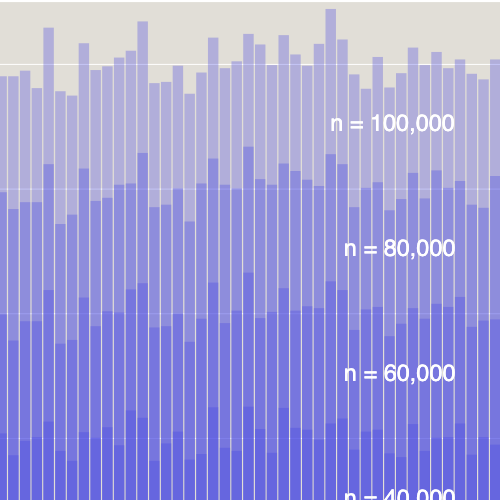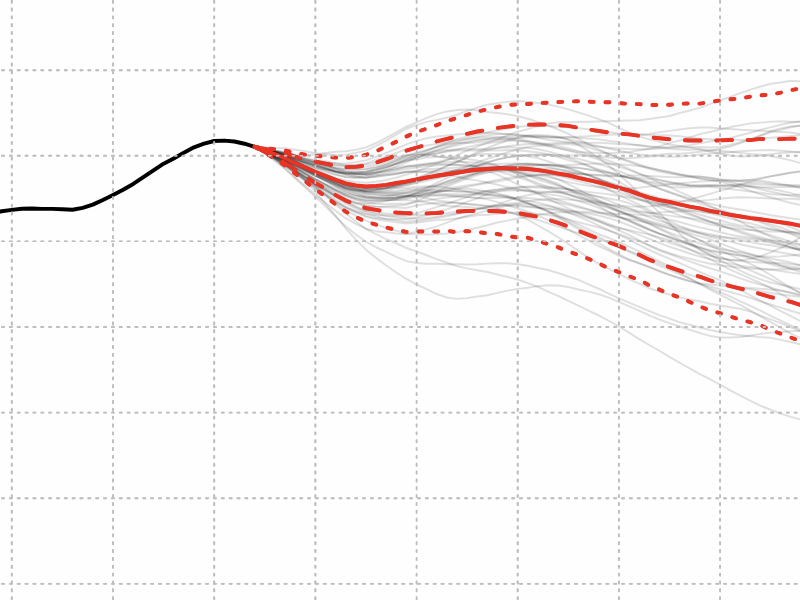A <em>New Yorker</em> Theorem
by Brian Hayes
Published 6 November 2007
Barry Cipra, my friend and former neighbor, and a frequent bit-player commentator, is the Talk of the Town this week. A story in The New Yorker by Lizzie Widdicombe highlights Barry’s work on the mathematics of the following calendrical problem.
Doing all arithmetic modulo 100, if you were born in the year X, you reach age X in the year 2X. For example, if you were born in ’54, you’ll be age 54 next year, in (2 × 54) mod 100 = ’08. But another group will also be reaching their birth-year age in ’08, namely the children born in ’04. So here’s the question Barry tackles: In any given year, which cohorts have already reached their birth-year age, and which are still looking forward to this event?
For an account of the human side of this problem, explaining why it might interest New Yorker readers, see Widdicombe’s article. For more on the mathematics, see Barry’s paper. (As far as I know, this is the only mathematics paper you’ll find with a URL beginning “http://www.newyorker.com/”.)
Publication history
First publication: 6 November 2007
Converted to Eleventy framework: 22 April 2025


